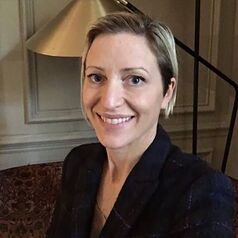
Elsa Fouragnan
Associate Professor, School of Psychology, University of Plymouth
My research focuses on the neurobiology of decision-making and learning, both in healthy adults and in patients with psychiatric disorders. After working as a biomedical engineer, developing brain-related clinical devises, I pursued an academic career in computational neuroscience at the universities of Glasgow and Oxford. My previous research focused on the proof of principle that transcranial ultrasound neuromodulation can safely and transiently change neural activity in precise parts of the brain, particularly deep regions of the brain, repsonsible for core cognitive and motivational processes. I am now working towards bringing this technology forward and apply it to mental health challenges.
Do you know how incredible the different applications of therapeutic ultrasound can be for mental health disorders? I created this cool video with @Animate_Science
https://youtube.com/watch?v=KsuqRldCspU… Enjoy!
Less ![]()
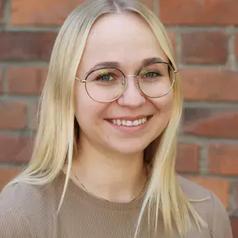
Elsa Ojalehto
PhD candidate, Department of Medical Epidemiology and Biostatistics, Karolinska Institutet
I am a PhD student at the Department of Medical Epidemiology and Biostatistics, interested in exploring genetic and environmental factors to better understand complex phenotypes.
My doctoral research, and my primary research aim entails going beyond studying only body mass index and explore how adiposity influence the risk of cardiovascular disease and type 2 diabetes in light of unmeasured confounding and potential mediating factors. I am also interested in the life-course perspectives in aging and health.
Less ![]()
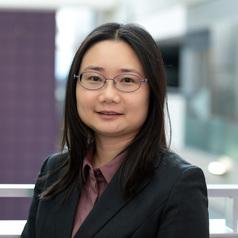
Elsa T. Chan
Lecturer in Organisational Behaviour, University of Sussex Business School, University of Sussex
Elsa Chan is Lecturer (Assistant Professor) in Organisational Behaviour at the University of Sussex Business School. She received her PhD in Management and Entrepreneurship from the University of Colorado, Boulder. Elsa's research examines leadership, entrepreneurship, and motivation. She studies how leader behaviours influence workplace outcomes and how psychological factors shape entrepreneurial outcomes. Her work also explores diversity in the workplace.
Less ![]()

Elsabe Kearsley
Professor in Civil Engineering, University of Pretoria
I graduated with a degree in civil engineering from the University of Pretoria in 1984 and I am registered as a professional engineer with the Engineering Council of South Africa (ECSA). I am a past president of both the South African Institution of Civil Engineering (SAICE) and the South African Academy of Engineering (SAAE). I have been a National Research Forum (NRF) rated researcher since 2007 and my research is focused on reducing the environmental footprint of the cement and concrete industry. I have been an author of 126 peer reviewed accredited journal and conference papers and to date supervised 35 research Masters and PhD graduates.
Less ![]()

Elva Arulchelvan
Lecturer in Psychology and PhD Researcher in Psychology and Neuroscience, Trinity College Dublin
Elva Arulchelvan is completing a PhD in psychology and neuroscience for the Lab for Clinical and Integrative Neuroscience in Trinity College Dublin (TCD), Ireland. She is also a lecturer in psychology for social work students in TCD. Elva's PhD research focuses on memory and forgetting processes. In particular, her PhD research involves investigating peripheral nerve stimulation's effect on memory and forgetting in both clinical and non-clinical groups. Elva has a keen interest in making research accessible to everyone, and loves sharing her research through writing or giving talks and presentations.
Prior to her work in the field of psychology, Elva completed a Bachelor of Commerce International with Chinese in the University College of Dublin. After graduating from that degree, she spent several years working in tech companies (incl. Deliveroo and HubSpot) helping commercial clients grow their sales using these platforms' services. She also spent time working as a project manager launching an Italian restaurant, an Italian import company and an immigration via investment company, before recognizing that her real passion lay in understanding people, and how our decisions and wellbeing can be influenced by much more factors than most people realize. This led her to pursue a degree in psychology, and subsequently to her current PhD research and lecturing work.
Less ![]()
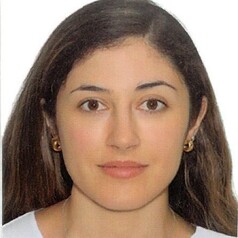

Elyse Dwyer
Researcher, Department of Economics, Macquarie University
Elyse has recently graduated from the University of Queensland with First Class Honours in the Bachelor of Advanced Finance and Economics.
Elyse honours thesis focused on understanding the spatial dispersion of firm-level productivity in Australia using BLADE microdata from the Australian Bureau of Statistics.
Less ![]()

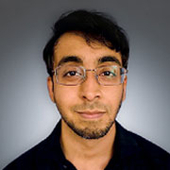

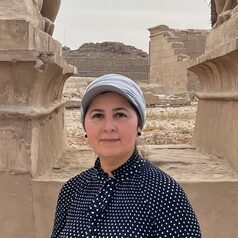
Eman Ghoneim
Professor and Director of Space and Drone Remote Sensing Lab, University of North Carolina Wilmington
Dr. Ghoneim received her PhD in 2002 from the School of Geography, University of Southampton, United Kingdom. In 2003, she joined the Center for Remote Sensing at Boston University, USA and worked as Research Assistant Professor until summer 2010. Her primary interest is in the application of Geographical Information Systems (GIS), Remote Sensing and the use of hydrologic modeling in Flash flood hazard, Groundwater exploration in desert environments and present Sea Level Rise simulation. She has conducted research on the flash flood potential and vulnerability in the arid Red Sea coast of Egypt. She has worked on projects for groundwater exploration in the northern United Arab Emirates (UAE), Sudan, Libya and southwestern Egypt. Dr. Ghoneim also uses satellite images (thermal infrared data) for detecting groundwater discharge inland and into the sea in the Arabian Peninsula. She is currently involved in the reconstruction of the Paleohydrological map of the Great Sahara using numerous remote sensing techniques and satellite data such as SRTM and SAR radar imagery data.
Less ![]()

Emanuel Bylund
Professor of General Linguistics, Stellenbosch University
Emanuel Bylund is Professor of General Linguistics at Stellenbosch University, South Africa. His research concerns age effects in language acquisition and language attrition, and the role of linguistic categories for the cognitive processing of reality. His work has covered languages such as Afrikaans, German, Spanish, Swedish, and isiXhosa, and has appeared in outlets such as Applied Linguistics, Bilingualism: Language and Cognition, Cognition, Developmental Science, and Journal of Experimental Psychology: General. He is the founding member of the African Psycholinguistics Association, and director of the Multilingualism and Cognition Laboratory at Stellenbosch University.
Less ![]()
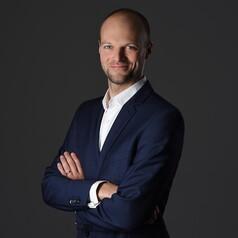
Emanuel de Bellis
Associate Professor and Director of the Institute of Behavioral Science and Technology, University of St.Gallen
Emanuel de Bellis is Associate Professor of Empirical Research Methods and Director of the Institute of Behavioral Science and Technology (IBT). Before joining the University of St.Gallen in 2021, he was an Assistant Professor at HEC Lausanne and spent visits at Columbia Business School and the University of British Columbia. He holds a PhD in Management and a Master in Cognitive and Decision Sciences.
As a behavioral scientist, Emanuel de Bellis examines the underlying mechanisms that drive our behavior, combined with his interest in current technological and societal developments. In a series of research projects, he seeks to improve the understanding of how consumers perceive and use new technologies, including barriers to their consumer adoption. His findings show, for example, that the relationship between humans and technology is changing fundamentally, as shown by the humanization of autonomous products, and that these products need to be designed in a way which provides meaning to consumers. In addition, he is an expert on mass customization and personalization and a thought leader in crypto-marketing and NFTs.
His research has been published in top-tier marketing journals, such as the Journal of Marketing, the Journal of Marketing Research, the Journal of the Academy of Marketing Science, and the International Journal of Research in Marketing. It has been awarded with the Rigour & Relevance Research Award and has been featured in both international and Swiss media outlets (e.g., Forbes, Harvard Business Review, MIT Sloan Management Review, Neue Zürcher Zeitung). In 2021, he released The Machine Age of Customer Insight, a book on the transformation of customer insights and the growing impact of machine learning.
Emanuel de Bellis is at the forefront of the University’s method training. He teaches method courses at Bachelor, Master, PhD, and executive level, such as the Methods: Empirical Social Research lecture which is mandatory for every business student in the Bachelor program. In addition, he leads the University’s Data and Method Consulting team and is Academic Co-Director of the Global School in Empirical Research Methods, the University’s Academic Plagiarism Adivsor, and the University’s representative at the Federal Commission for Scholarships for Foreign Students.
Less ![]()
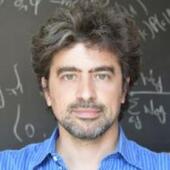
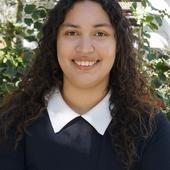
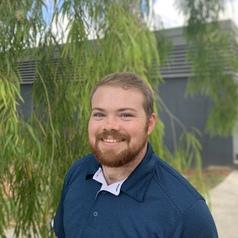
Emerson Zerafa-Payne
Lecturer, University of Southern Queensland
Emerson is a current PhD candidate and lecturer at UniSQ, but in his previous life taught teenagers English and Social Science. He has a Bachelor of Secondary Ed, Master of Ed, Grad Cert in Policy Analysis and his PhD is due for completion mid-2024.
Less ![]()

Emil Archambault
Addison Wheeler Fellow in the School of Government and International Affairs , Durham University
I am an Addison Wheeler postdoctoral fellow in Government and International Affairs at the University of Durham since January 2024. My research is situated at the intersection of International Security and International Political Theory, and addresses the broad political dynamics shaping remoteness and war in global politics. My main research project engages with democratic contestation of contemporary military practices, particularly the use of military drones and military infrastructure. In addition to this project, I am currently working on a monograph titled Making War Remote, which expands on my doctoral dissertation. Furthermore, I continue to conduct research on non-state actors' use of armed drones. My full research activities can be found on my website.
Prior to my current postdoctoral fellowship, I was a MINDS-SSHRC postdoctoral fellow at the University of Ottawa, Canada. I hold a PhD in Government and International Affairs from the University of Durham and an MPhil in International Political Theory from the University of St Andrews, UK.
Research interests
International security; war studies; remote warfare; military drones; Carl Schmitt; Visual Investigations; Democracy and War
Publications
Book review
Archambault, E. (2020). Book review: Rise and kill first. https://doi.org/10.15664/jtr.1506
Archambault, E. (2019). Imperialism and the Making of Armies. International Studies Review, 21(3), 542-543. https://doi.org/10.1093/isr/viz035
Archambault, E. (2019). Book review: Death machines: the ethics of violent technologies. International Affairs, 95(2), 470-472. https://doi.org/10.1093/ia/iiz024
Chapter in book
Archambault, E., & Veilleux-Lepage, Y. (2024). The Islamic State's Drone Innovation. In J. P. Rogers (Ed.), De Gruyter Handbook of Drone Warfare (243-254). De Gruyter. https://doi.org/10.1515/9783110742039-017
Archambault, E., & Veilleux-Lepage, Y. (2019). The Soldiers of Odin in Canada: The failure of a transnational ideology. In T. Bjørgo, & M. Mareš (Eds.), Vigilantism against Migrants and Minorities (272-285). Routledge. https://doi.org/10.4324/9780429485619
Doctoral Thesis
Archambault, E. (2021). Making Drone Violence Strategic: A Conceptual Genealogy of Remote Warfare. (Thesis). University of Durham. https://durham-repository.worktribe.com/output/2292011
Journal Article
Archambault, E. (2020). A good guy with a drone: On the ethics of drone warfare. Contemporary Political Theory, 19(S3), 169-175. https://doi.org/10.1057/s41296-019-00328-w
Veilleux-Lepage, Y., & Archambault, E. (2020). Drone imagery in Islamic State propaganda: flying like a state. International Affairs, 96(4), 955-973. https://doi.org/10.1093/ia/iiaa014
Veilleux-Lepage, Y., & Archambault, E. (2019). Mapping Transnational Extremist Networks: An Exploratory Study of the Soldiers of Odin’s Facebook Network, Using Integrated Social Network Analysis
Archambault, E. (2018). Targeted Killing, Technologies of Violence, and Society. Millennium: Journal of International Studies, 47(1), 142-152. https://doi.org/10.1177/0305829818779124
Less ![]()
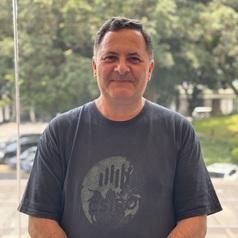
Emil Lenc
Research Scientist, Space and Astronomy, CSIRO
Emil is a senior research scientist at CSIRO Space and Astronomy. He has been involved in the commissioning of radio telescopes such as the Murchison Widefield Array and ASKAP and is currently working with two ASKAP survey projects: the Variable and Slow Transients project (VAST) and the Rapid ASKAP Continuum Survey (RACS).
Less ![]()
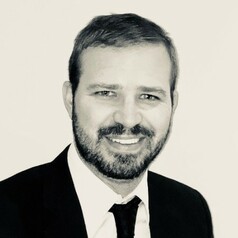
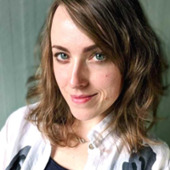
Emilia Sobolewska
Lecturer and Researcher in Applied Informatics, Edinburgh Napier University
Less ![]()

Emilia Wilson
Lecturer in philosophy, School of English, Communication and Philosophy, Cardiff University
Less ![]()

Emiliana Tonini
Postdoctoral Research Fellow, Brain and Mind Centre, University of Sydney
Dr Emiliana Tonini is a postdoctoral research fellow in the Youth Mental Health and Technology team at the Brain and Mind Centre at the University of Sydney. She received a Bachelor of Science in Biology in 2016, a Master of Science in Neuroscience in 2018, and a PhD in Neuroscience in 2023.
Her doctoral work focused on investigating the associations between environmental risk factors for psychosis, genetic vulnerability for schizophrenia, and neural correlates of schizotypy in a population including individuals on the psychosis spectrum.
Her work focuses on sleep-wake cycles and circadian rhythms in the context of emerging mood disorders in adolescence.
Less ![]()
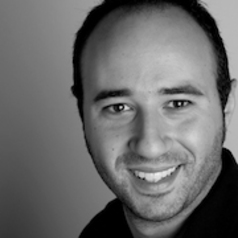
Emiliano De Cristofaro
Senior Lecturer in Security and Privacy (Computer Science), UCL
Emiliano De Cristofaro is a Senior Lecturer (Associate Professor) at University College London (UCL). Prior to joining UCL in 2013, he was a Research Scientist at Xerox PARC. In 2011, he received a PhD in Networked Systems from the University of California, Irvine, advised by Gene Tsudik, and, in 2005 a B.Sc. (summa cum laude) in Computer Science from the University of Salerno, Italy. His research interests include privacy, security, and applied cryptography. He received the Dean's Fellowship and the Distinguished Dissertation Fellowship from UC Irvine and the Excellency Award from PARC's Computer Science Lab. In 2013 and 2014, he co-chaired the Privacy Enhancing Technologies Symposium (PETS).
Less ![]()

Emilie Bronner
Représentante CNES au Secrétariat Exécutif de la Charte Internationale Espace et Catastrophes Majeures, Centre national d’études spatiales (CNES)
Ingénieure spécialisée en Topographie, Emilie a rapidement orienté son cursus vers le spatial avec un master "Outils et Systèmes de l'Astronomie et de l'Espace" à Paris. Elle a ensuite continué son parcours avec un Doctorat en Electromagnétisme et Radar à l'ONERA de Palaiseau.
En rejoignant Toulouse, elle passe d'abord 3 années dans une société de services (NOVELTIS) puis rejoint le CNES en 2008. Elle passe 9 ans dans le domaine de l'altimétrie afin d'étudier la hauteur du niveau des océans par satellite, 4 ans sur le projet SAR/Galileo (balises de détresse détectées par satellite). Un passage au CADMOS lui permet de découvrir l'univers des vols habités. Enfin, elle prend récemment les rennes du projet Charte Internationale Espace et Catastrophes Majeures, où elle assure le rôle de Représentante CNES au Secrétariat Exécutif.
Less ![]()

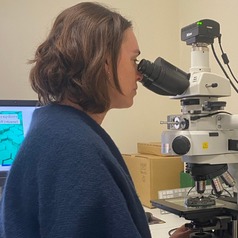
Emilie Dotte-Sarout
ARC DECRA Research Fellow in Archaeology, The University of Western Australia
My research focuses on 2 relatively underdeveloped fields of research in the archaeology of Oceania: archaeobotany and the history of archaeology. My main current research project aims to investigate the history of the first women who participated in the development of archaeology in the Pacific. Previous and ongoing research also include the historiography of francophone archaeology in the Pacific and the development of archaeobotany in Australia and the Pacific Islands.
Less ![]()
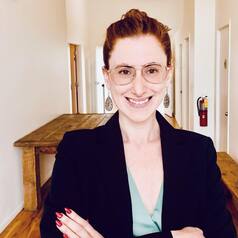
Emilie El Khoury
Postdoctoral fellow at Queen's University's Centre for International Policy and Defence (CIDP), Queen's University, Ontario
Dr. Emilie El Khoury is a postdoctoral fellow at the Centre for International Policy and Defence (CIDP) at Queen's University. Her primary area of expertise is anthropology, with a specific focus on terrorism and the Middle East. Her research encompasses a wide array of domains, including warfare, religion, politics, and their implications for topics such as terrorism, security, gender dynamics, and the processes leading to radicalization and violence. Her research undertaken within the CIDP concentrates on the comprehensive examination of the impact of counterinsurgency and counterterrorism, their tactics, and their consequences on local populations, with a particular emphasis on women, in the context of NATO operations. Dr. El Khoury also holds the position of Senior Fellow at the Canadian Institute for Far-Right Studies (CIFRS).
Less ![]()
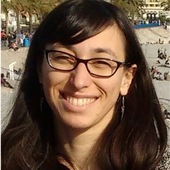

Emilie Ghio
Lecturer in Corporate and Insolvency Law, The University of Edinburgh
Dr Emilie Ghio is a lecturer in corporate and insolvency law at the University of Edinburgh. She holds a PhD, LLM, and LLB from University College Cork (Ireland) and an LLB from the University of Strasbourg (France). Emilie his an established and active corporate insolvency and rescue law scholar with an expansive domestic and international research portfolio, which includes numerous and varied publications (monographs, textbooks, peer-reviewed journal articles, conference proceedings, expert technical magazine articles).
She has recently published: Re-examining Insolvency Law and Theory: Perspectives for the 21st Century (2023); Redefining Harmonisation. Lessons from EU Insolvency Law (2022); English Corporate Insolvency Law. A primer (2022, with E. Vaccari).
Less ![]()
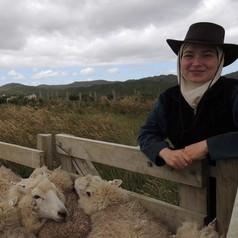
Emilie Vallee
Senior Lecturer in Veterinary Epidemiology, Massey University
Emilie Vallee is a French veterinarian now working at Massey University's EpiCentre as a lecturer in Veterinary epidemiology, after an initial training as veterinary epidemiologist in developing countries. Her research portfolio involves most of the NZ animal species you can think of, from native birds to pets and livestock. She works on transmissible and non-transmissible diseases, outbreak investigations, clinical trials, disease control, and effects of climate change on animal health. She is a member of the epidemiology chapter of the Australia and New Zealand College of Veterinary Scientists.
She currently leads the project "CliZod" focussing on climate-sensitive zoonotic diseases, funded by the Wellcome Trust.
Less ![]()

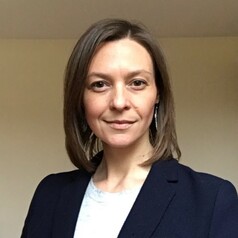
Emilija Pundziūtė-Gallois
Emilija Pundziūtė-Gallois, docteure en science politique et relations internationales, est actuellement chercheure à l'Université Vytautas Magnus de Kaunas, Lituanie, et docteure associée au Centre d'Études et de Recherches de Sciences Administratives et Politiques (CERSA) à Paris Panthéon-Assas. Elle est spécialiste en relations internationales, sociologie de la politique étrangère, action diplomatique, sécurité européenne et résolution des conflits avec un focus sur la Russie et sur la région baltique.
Less ![]()

Emily Abbinett
Senior Lecturer, Cardiff Metropolitan University
I am a senior lecturer in Education at Cardiff Metropolitan University, specialising in Additional Learning Needs (ALN), disability and inclusion. I have been working at the University for 14 years during which I have taught across a range of different undergraduate programmes but currently deliver modules on the BSc (Hons) Education, Psychology and SEN (special educational needs) programme.
During my time as a lecturer, I completed a part-time PhD which explored how assistive technology could support the needs of pupils with a visual impairment. Prior to this I was a Research Assistant at the University where I conducted research relating to a range of different areas relating to education.
Less ![]()

Emily Arden-Close
Principal Academic in Psychology, Bournemouth University
Emily Arden-Close is a Principal Academia in Psychology at Bournemouth University. She completed her PhD in Health Psychology Research and Professional Practice at the University of Southampton, followed by research posts at the Universities of Sheffield and Southampton, and a mixed academic post at the University of Southampton. She is a registered Health Psychologist with the Health and Care Professions Council and an Associate Fellow of the British Psychological Society.
Emily's research focuses on assessing and improving health and quality of life in long-term illness, and developing and evaluating digital interventions to improve health and wellbeing. She has worked on a Cancer Research UK funded grant looking at sperm banking before cancer treatment, and an Asthma Research UK funded grant which developed a breathing training intervention for patients with asthma, the results of which were published in The Lancet Respiratory Medicine.
Emily has expertise in both qualitative and quantitative research, and in design of questionnaires and randomised controlled trials. She brings to her work both awareness of behaviour change techniques and a person-based approach to involving users in the development of digital interventions.
Less ![]()
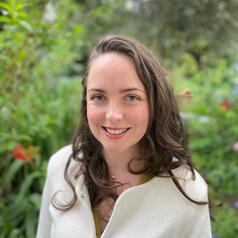
Emily Barritt
Senior Lecturer in Environmental Law, King's College London
Dr Emily Barritt is Senior Lecturer in Environmental Law and Co-Director of the Transnational Law Institute. She holds fellowships at the Centre for Environment, Energy and Natural Resource Governance at the University of Cambridge and the School of Law, Sciences Po. She is the author of the first monograph on the UNECE Aarhus Convention and has been cited by the Advocate General in recent jurisprudence from the Court of Justice of the European Union. Her research covers environmental justice, democracy, stewardship, climate litigation and Rights of Nature. Her work on a film about climate litigation and the Rights of Nature in Colombia was recently awarded a prize from King’s College London for international research engagement. Emily sits on the editorial board of the Journal of Environmental Law as an Analysis Editor and is a trustee of the Environmental Law Foundation.
Less ![]()
- Market Data





















